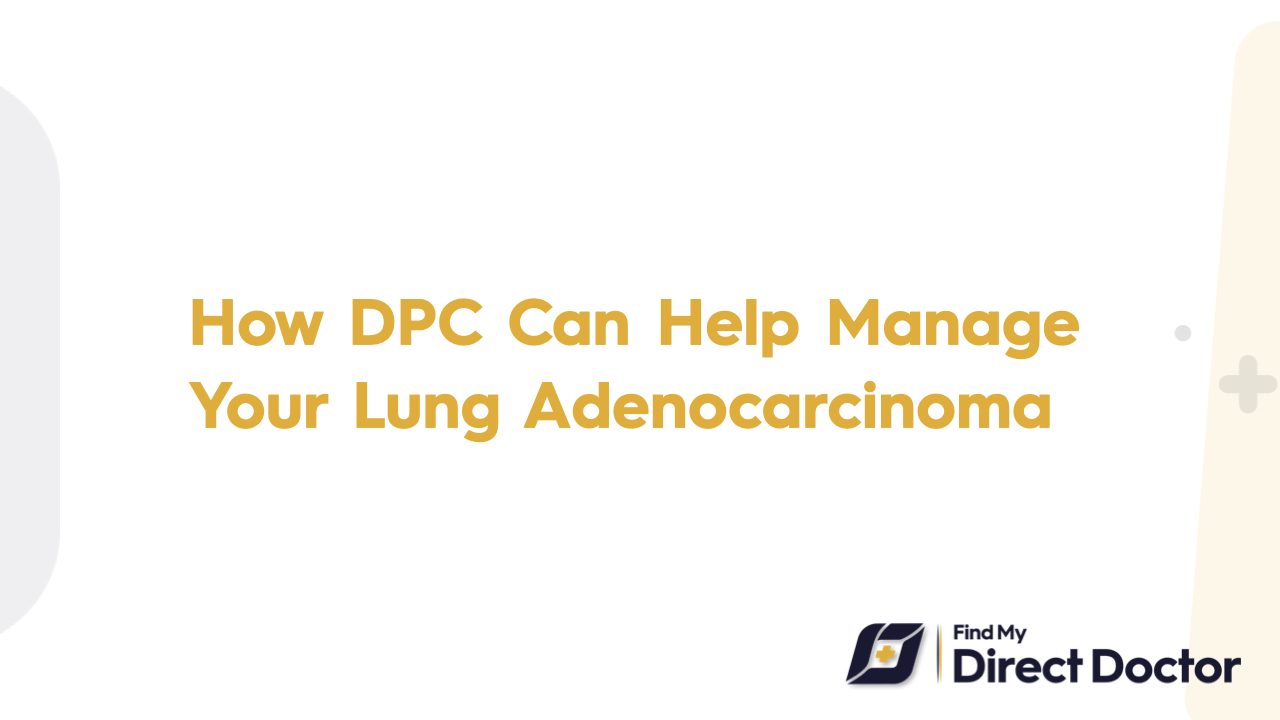



One kind of non-small cell lung cancer that starts in the lungs' mucus-producing glands is called lung adenocarcinoma. It is among the most prevalent forms of lung cancer, particularly in nonsmokers, even though smoking remains a major risk factor. This malignancy can spread to other parts of the body and usually starts in the outer lungs. Compared to other forms of lung cancer, it usually grows more slowly, but if not caught early, it can still be aggressive.

Lung adenocarcinoma symptoms can be mild, particularly in the early stages, and might not be apparent until the cancer has spread. Constant coughing, chest pain, dyspnea, inexplicable weight loss, and exhaustion are typical symptoms. Additionally, some people may cough up rust-colored phlegm or blood. More obvious symptoms like wheezing, hoarseness, or swelling in the face or neck from clogged veins may appear as the tumor gets bigger. However, without specialized testing, lung adenocarcinoma can be challenging to identify because these symptoms might be confused with those of other illnesses.
Because Direct Primary Care (DPC) provides individualized and ongoing care throughout the course of treatment, it can be crucial in the management of lung adenocarcinoma. Patients with DPC see their doctor more frequently, which can help with symptom monitoring, treatment side effect management, and emotional support. Any new symptoms or changes in condition will be immediately handled if there are no lengthy wait times to consult with a provider.
DPC providers can coordinate care with oncologists and other treatment specialists in addition to treating side effects associated with the patient's therapy. Through this partnership, all facets of the patient's care—such as physical therapy, diet, and symptom management—are taken into account. Additionally, DPC enables more time to be spent with the patient, providing a forum for them to voice concerns and ask questions, which can enhance treatment satisfaction and adherence in general.
The proactive and individualized approach to care provided by DPC is among the biggest advantages for patients with lung cancer. Patients can get personalized health plans with DPC that are intended to manage their cancer and general well-being. For cancer patients, who frequently have to deal with complicated treatment plans and a range of side effects, this individualized care might be especially crucial. In a DPC model, a close interaction between the patient and the provider guarantees that patients receive the greatest possible support and guidance.
Additionally, DPC facilitates more effective patient navigation of the healthcare system. DPC gives patients immediate access to medical professionals who can assist in navigating treatment options, appointments, and required testing, saving them from having to deal with insurance complications or wait weeks for a specialist appointment. Because patients are more likely to follow their treatment programs and remain involved in their health, this makes managing lung adenocarcinoma less stressful and more coordinated, which could result in better outcomes.
Healthcare professionals can design specialized programs that cater to the unique requirements of every patient with lung adenocarcinoma thanks to personalized management in DPC. When creating a care plan, DPC clinicians consider the patient's medical history, lifestyle, and preferred course of treatment because cancer treatment is not a one-size-fits-all procedure. This could include suggestions for enhancing quality of life through nutrition, exercise, and stress-reduction methods, as well as advice on how to handle adverse symptoms like nausea, exhaustion, or pain.
Additionally, DPC offers the chance to continuously monitor the patient's health, enabling real-time treatment plan modifications. This could entail paying more attention to imaging scans, lab data, and any indications of illness progression. For cancer patients dealing with the difficulties of treatment and recuperation, regular check-ins with the DPC provider also give emotional support. DPC professionals make sure that each patient's treatment path is as easy and manageable as possible by concentrating on the full person.
Previous Post
Next Post